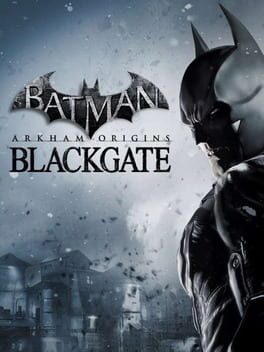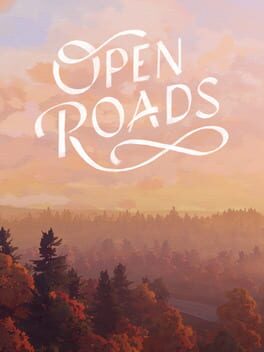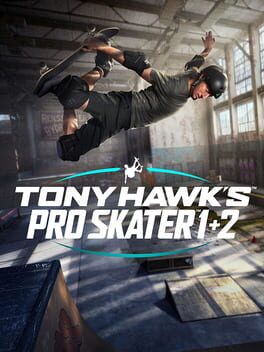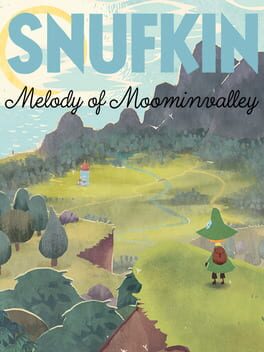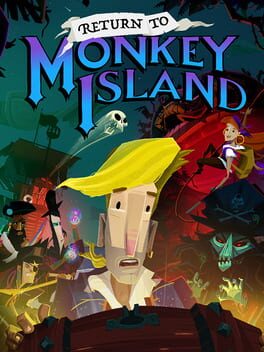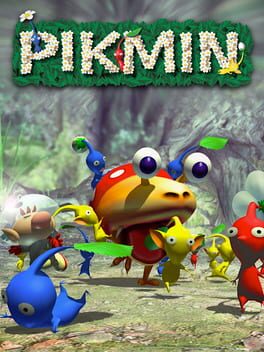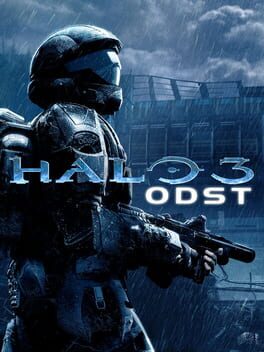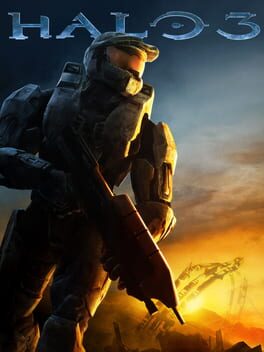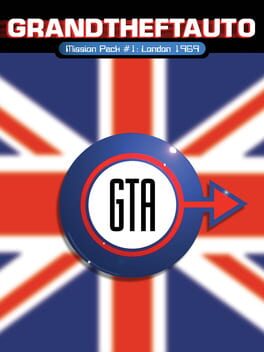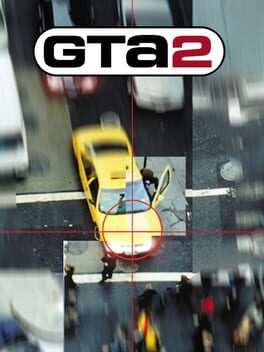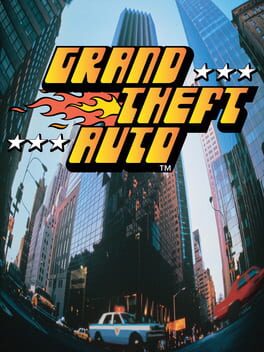svejkovat
A well crafted transition into handheld for the Arkham series that provides some of the old school simplicity and intriguing puzzles that were a cornerstone of 2D Batman games of the past.
The graphical presentation works well, even if the environments are relentlessly similar and not at all a departure from the sites of interest seen in the more high profile 3D games.
Overall the gameplay is a touch too simple to remain engaging throughout the entire playthrough but I cannot deny I enjoyed what was here whilst it lasted.
The graphical presentation works well, even if the environments are relentlessly similar and not at all a departure from the sites of interest seen in the more high profile 3D games.
Overall the gameplay is a touch too simple to remain engaging throughout the entire playthrough but I cannot deny I enjoyed what was here whilst it lasted.
2024
Open Roads is desperately safe and as a result it is also relatively dull. Whilst these kinds of adventure/walking simulators often appeal to me very little about the characters, plot, or script leapt from this particular page - nonetheless I wanted to give it a chance. Unfortunately my instincts were correct.
There’s no challenge or intrigue to speak of. The ‘mystery’ is little more than a telegraphed twist - and once that twist is delivered, the game ends. I’m not sure how long Open Roads is but it felt like it was under 3 hours, and I am someone who generally investigates everything. Lucky it was on Game Pass because I doubt I would have been happy paying more than £5 for it. I know there were development issues with the game and I wonder if as a result they curtailed the plot.
This is the third Annapurna published game I have played now that provided enticing hype only to turn out to be very uncreative.
Our main character Tess is not really a teenager in any realistic way and her attempts to be witty are rather vacant. I had much more time for the mother, Opal, who at least wears some of the flesh of an imperfect human. In fact I often felt like the interest came from Opal’s relationship with her mother and sister - yet we only encountered this through the wavering concerns of Tess. An odd narrative approach altogether and one that lets all the relatively interesting sub plots simply die on the vine.
This is further exacerbated by the disjointed style of introducing dialogue which comes from cut aways in which you ask your mother about this or that object. Nearly every answer is predictable and flat. For example, at one point you discover clear evidence of a large burglary and both characters sound like they are contemplating what to have for breakfast. Is this really the great breakthrough in videogame acting the developers liked to claim? Absolutely not. The ending is even more frustrating in this same sense, their reaction to events is simply illogical.
Open Roads has a pleasant art style with an accurate and detailed world to explore (limited as it is). I particularly enjoyed the attention to creating objects and literature of the time. I was a similar age to Tess at the time the game is set and it certainly rang true for the most part.
Technically the game works well. I saw one instance of textures overlapping and my cursor occasionally failed to read the item I was trying to select, but these were relatively minor issues.
With more intrigue, a sharper script, and greater flexibility in your approach to the hurdles available this could be a promising adventure. As it is, it’s just a lot of nothingness.
There’s no challenge or intrigue to speak of. The ‘mystery’ is little more than a telegraphed twist - and once that twist is delivered, the game ends. I’m not sure how long Open Roads is but it felt like it was under 3 hours, and I am someone who generally investigates everything. Lucky it was on Game Pass because I doubt I would have been happy paying more than £5 for it. I know there were development issues with the game and I wonder if as a result they curtailed the plot.
This is the third Annapurna published game I have played now that provided enticing hype only to turn out to be very uncreative.
Our main character Tess is not really a teenager in any realistic way and her attempts to be witty are rather vacant. I had much more time for the mother, Opal, who at least wears some of the flesh of an imperfect human. In fact I often felt like the interest came from Opal’s relationship with her mother and sister - yet we only encountered this through the wavering concerns of Tess. An odd narrative approach altogether and one that lets all the relatively interesting sub plots simply die on the vine.
This is further exacerbated by the disjointed style of introducing dialogue which comes from cut aways in which you ask your mother about this or that object. Nearly every answer is predictable and flat. For example, at one point you discover clear evidence of a large burglary and both characters sound like they are contemplating what to have for breakfast. Is this really the great breakthrough in videogame acting the developers liked to claim? Absolutely not. The ending is even more frustrating in this same sense, their reaction to events is simply illogical.
Open Roads has a pleasant art style with an accurate and detailed world to explore (limited as it is). I particularly enjoyed the attention to creating objects and literature of the time. I was a similar age to Tess at the time the game is set and it certainly rang true for the most part.
Technically the game works well. I saw one instance of textures overlapping and my cursor occasionally failed to read the item I was trying to select, but these were relatively minor issues.
With more intrigue, a sharper script, and greater flexibility in your approach to the hurdles available this could be a promising adventure. As it is, it’s just a lot of nothingness.
2017
A nice little mobile time sink but the presentation of snooker is relatively lazy and lacking in any real sophistication. It’s an arcade game after all, but I would prefer it was somewhat more steeped in realism.
Potting is far too easy as the pockets are essentially pool pockets. This makes long pots relatively simple meaning you have no great incentive to keep the cue ball well controlled, which after all is the essence of snooker. On cue ball control, it rarely reacts off the cushion in the way it should and this means that the levels requiring you to avoid obstacles become a bit of a case of hit and hope. I would rather miss a long pot due to too much or too little power or unecessary side than lose position because my cue ball went off the cushion in a way it would not in real life.
As with all mobile games it suffers from paid add ons and time limits. I would rather just pay a fee for the game and not have to suffer this constant intrusion myself but this is clearly the business model they prefer.
Potting is far too easy as the pockets are essentially pool pockets. This makes long pots relatively simple meaning you have no great incentive to keep the cue ball well controlled, which after all is the essence of snooker. On cue ball control, it rarely reacts off the cushion in the way it should and this means that the levels requiring you to avoid obstacles become a bit of a case of hit and hope. I would rather miss a long pot due to too much or too little power or unecessary side than lose position because my cue ball went off the cushion in a way it would not in real life.
As with all mobile games it suffers from paid add ons and time limits. I would rather just pay a fee for the game and not have to suffer this constant intrusion myself but this is clearly the business model they prefer.
A truly brilliant successor to the outstanding Breath of the Wild and one of the most ambitious games ever made, were it not for some unnecessary bloat and more than a touch of repetition both as a sequel and standalone adventure it would be even better than its more pioneering predecessor.
It took me over a year to complete this game, such is the expanse of the map which is around 3x the size of Breath of the Wild - and that was by no means small. Unfortunately this is somewhat artificial as the underworld is essentially a gloom infested mirror of the overworld with diminished detail, and the more interesting yet sparser sky islands are appropriately less abundant. That time span is also in part simply the reality of not having as much available to play games now. Usually I would ignore such a gigantic landscape and open world setting due to time constraints but the brilliance of Nintendo’s latest Zelda adventure has me reconsidering that assumption.
I truly loved 90% of my time with this game. It is iterative of course, and directly builds on the much more novel release that was Breath of the Wild, but I think that was a justified decision. The star performance this time comes in the form of your powers inherited from the Zonai (the story is convoluted but also very simply Zelda, so you shouldn’t expect anything drastically new). The Fuse power in particular - which allows you to bond items to weapons, arrows, and shields - drastically alters the way in which you approach fights and how you traverse the environment. Alongside this is the ability to essentially craft vehicles and objects with the correct pieces. This ability completely transforms how you solve puzzles and dungeons. Stupidly I did not seek to complete the quest which provides you with the Autobuild power until I was well into my adventure. I advise completing this quest as soon as possible.
The shrines in Tears of the Kingdom are vastly improved from the previous game. I enjoyed completing every one I found. They adeptly taught you how to utilise these new powers and provided you lessons on how to approach challenges in a more varied way. I only wish the much more box tick element of the light roots in the depths had more of this quality.
Unfortunately I found almost every boss this time round lacking in challenge and not that interesting. It’s true Zelda games vary a lot in this regard but for me this is one of the worst crop in the series. The 5 quests to unlock the Sages which will help you defeat Ganondorf are also not as creative as was the case last time round. I only truly enjoyed the wind and water sage dungeons, the others were a bit of a slog - in particular the Gerudo quest.
The overall similarity of the sage/guardian main quests in the last two games feels a bit jarring generally. During my quest with Prince Sidon I kept feeling a distinct sense of déjà vu, so much so I felt confused as to who was who in this narrative. This is not to say they are not great escapades, it just feels too familiar and lacks the freshness we found in Breath of the Wild.
The staggering conquest of this game arrives when you first leap from a sky island or launch out of a sky tower to the world below and if you wish - through a chasm into the depths. All of this occurs seamlessly in extravagant colour which the Switch handles without difficulty. A wonderful testament to the brilliance of this hardware. Is it disappointing that a new Zelda game looks the same graphically as a game designed for the Wii U from 7 years ago? I suppose a touch, but you hardly dwell on it. This is a verdant and enthralling art style that will stand the test of time.
Tears of the Kingdom is one of this generation’s must play games and I am excited to see what they think of next. You just never get a bad Zelda (well, maybe Zelda II) an incredible consistency that few developers can begin to match.
Might I end by noting my confusion as to why it took so long for a game to realise a power in which you can rise through ceilings would be highly useful. It genuinely is revolutionary.
It took me over a year to complete this game, such is the expanse of the map which is around 3x the size of Breath of the Wild - and that was by no means small. Unfortunately this is somewhat artificial as the underworld is essentially a gloom infested mirror of the overworld with diminished detail, and the more interesting yet sparser sky islands are appropriately less abundant. That time span is also in part simply the reality of not having as much available to play games now. Usually I would ignore such a gigantic landscape and open world setting due to time constraints but the brilliance of Nintendo’s latest Zelda adventure has me reconsidering that assumption.
I truly loved 90% of my time with this game. It is iterative of course, and directly builds on the much more novel release that was Breath of the Wild, but I think that was a justified decision. The star performance this time comes in the form of your powers inherited from the Zonai (the story is convoluted but also very simply Zelda, so you shouldn’t expect anything drastically new). The Fuse power in particular - which allows you to bond items to weapons, arrows, and shields - drastically alters the way in which you approach fights and how you traverse the environment. Alongside this is the ability to essentially craft vehicles and objects with the correct pieces. This ability completely transforms how you solve puzzles and dungeons. Stupidly I did not seek to complete the quest which provides you with the Autobuild power until I was well into my adventure. I advise completing this quest as soon as possible.
The shrines in Tears of the Kingdom are vastly improved from the previous game. I enjoyed completing every one I found. They adeptly taught you how to utilise these new powers and provided you lessons on how to approach challenges in a more varied way. I only wish the much more box tick element of the light roots in the depths had more of this quality.
Unfortunately I found almost every boss this time round lacking in challenge and not that interesting. It’s true Zelda games vary a lot in this regard but for me this is one of the worst crop in the series. The 5 quests to unlock the Sages which will help you defeat Ganondorf are also not as creative as was the case last time round. I only truly enjoyed the wind and water sage dungeons, the others were a bit of a slog - in particular the Gerudo quest.
The overall similarity of the sage/guardian main quests in the last two games feels a bit jarring generally. During my quest with Prince Sidon I kept feeling a distinct sense of déjà vu, so much so I felt confused as to who was who in this narrative. This is not to say they are not great escapades, it just feels too familiar and lacks the freshness we found in Breath of the Wild.
The staggering conquest of this game arrives when you first leap from a sky island or launch out of a sky tower to the world below and if you wish - through a chasm into the depths. All of this occurs seamlessly in extravagant colour which the Switch handles without difficulty. A wonderful testament to the brilliance of this hardware. Is it disappointing that a new Zelda game looks the same graphically as a game designed for the Wii U from 7 years ago? I suppose a touch, but you hardly dwell on it. This is a verdant and enthralling art style that will stand the test of time.
Tears of the Kingdom is one of this generation’s must play games and I am excited to see what they think of next. You just never get a bad Zelda (well, maybe Zelda II) an incredible consistency that few developers can begin to match.
Might I end by noting my confusion as to why it took so long for a game to realise a power in which you can rise through ceilings would be highly useful. It genuinely is revolutionary.
I do not have a great deal of interest in remakes for the most part. Undoubtedly it's difficult not to play them nowadays as it seems every third release is a remake in one sense or another. Yet, as reinventions of once compelling titles go, this is very good.
The nostalgic hit of youthful memories is provided adequately without resting too much on the laurels of simply putting on a new skin. The gameplay and dynamism of Tony Hawk's original campaigns are recaptured and updated with enough contemporary additions to make the fun feel fresh and exciting.
I am not entirely sure I had any great desire to actually revisit Tony Hawk's Pro Skater but the time I spent with this reimagining was enjoyable and worthwhile. It also reminded me that far too few games just give you simple high score goals anymore - there's a freedom to it that remains captivating.
The nostalgic hit of youthful memories is provided adequately without resting too much on the laurels of simply putting on a new skin. The gameplay and dynamism of Tony Hawk's original campaigns are recaptured and updated with enough contemporary additions to make the fun feel fresh and exciting.
I am not entirely sure I had any great desire to actually revisit Tony Hawk's Pro Skater but the time I spent with this reimagining was enjoyable and worthwhile. It also reminded me that far too few games just give you simple high score goals anymore - there's a freedom to it that remains captivating.
A beautiful lyrical game, but unfortunately an all too simple and rudimentary one.
I enjoyed my time trotting around the valley playing instruments to the flora and fauna of an evening. It was relaxing, wholesome, and calming. If you find pleasure in such games this will be perfect for you. If you equally are familiar with the characters of this land - even better. The art style is faithful to Jansson’s work and the occasional musical interlude from Sigur Rós is always welcome to my ears. I only wish there was more of it.
The passing stealth levels are as basic as possible. There is no real challenge or alternative way of approaching the task. That is not uncommon for adventure games yet they do tend to have a steeper puzzle element to allow for it. Melody of Moominvalley has none. You are tasked with collecting the odd item here or there but it’s nothing more complex than go to point B and back to point A. I recognise the game is largely for kids however and in that sense it offers a quaint and pleasant experience for the short time it maintains, but there could have been a lot more here. For example, let us read Moominpappa’s manuscript or compose the odd tune ourselves on the harmonica? It’s not a great deal to ask.
Oddly for such a simple game there are framerate issues on the Switch even when docked. This is now so common with every new release I barely raise an eyebrow these days, alas it’s worth noting. Equally I can’t really comprehend why there are so many loading screens - it is far from an expansive map or highly detailed visual experience. Couldn’t you have masked these loading points behind something? It all feels quite unthinking.
If you enjoy the sublime atmosphere of Moomins then you will undoubtedly enjoy your time in Moominvalley, as I did. It’s only somewhat disappointing there really was so little to do. You can finish the entire adventure in 3-4 hours I would imagine.
I enjoyed my time trotting around the valley playing instruments to the flora and fauna of an evening. It was relaxing, wholesome, and calming. If you find pleasure in such games this will be perfect for you. If you equally are familiar with the characters of this land - even better. The art style is faithful to Jansson’s work and the occasional musical interlude from Sigur Rós is always welcome to my ears. I only wish there was more of it.
The passing stealth levels are as basic as possible. There is no real challenge or alternative way of approaching the task. That is not uncommon for adventure games yet they do tend to have a steeper puzzle element to allow for it. Melody of Moominvalley has none. You are tasked with collecting the odd item here or there but it’s nothing more complex than go to point B and back to point A. I recognise the game is largely for kids however and in that sense it offers a quaint and pleasant experience for the short time it maintains, but there could have been a lot more here. For example, let us read Moominpappa’s manuscript or compose the odd tune ourselves on the harmonica? It’s not a great deal to ask.
Oddly for such a simple game there are framerate issues on the Switch even when docked. This is now so common with every new release I barely raise an eyebrow these days, alas it’s worth noting. Equally I can’t really comprehend why there are so many loading screens - it is far from an expansive map or highly detailed visual experience. Couldn’t you have masked these loading points behind something? It all feels quite unthinking.
If you enjoy the sublime atmosphere of Moomins then you will undoubtedly enjoy your time in Moominvalley, as I did. It’s only somewhat disappointing there really was so little to do. You can finish the entire adventure in 3-4 hours I would imagine.
It’s wonderful to be back, welcome aboard.
I do not hold Monkey Island up as one of the greatest adventure games but it is certainly close, sadly this is perhaps one of its weakest iterations. Despite that it’s a good adventure with all of the wry wit and whimsy you know and love from this series.
All of your favourite characters return and offer layered and humorous interest throughout the well paced plot. You will enjoy this whether you have played previous games in the series or not, but it certainly helps if you have. I imagine in particular some of the puzzles might be oddly impenetrable if you are not accustomed to Herbert’s way of thinking. I admit I did have to delve into the hints section a few times.
The art style is beautiful and unique, it moves with such fluid colour. I never tired of looking at it. The voice cast are just as good as in past games and the music is suitably joyous.
Alas, a narrative game has to cohere to excel and I cannot get on board with the tone or purpose of the ending. I won’t discuss the detail here but meta narratives always strike me as cheap storytelling. I understand what they are trying to get across to the player but it left me cold, which is a disappointing end to a series I have great fondness for.
I do not hold Monkey Island up as one of the greatest adventure games but it is certainly close, sadly this is perhaps one of its weakest iterations. Despite that it’s a good adventure with all of the wry wit and whimsy you know and love from this series.
All of your favourite characters return and offer layered and humorous interest throughout the well paced plot. You will enjoy this whether you have played previous games in the series or not, but it certainly helps if you have. I imagine in particular some of the puzzles might be oddly impenetrable if you are not accustomed to Herbert’s way of thinking. I admit I did have to delve into the hints section a few times.
The art style is beautiful and unique, it moves with such fluid colour. I never tired of looking at it. The voice cast are just as good as in past games and the music is suitably joyous.
Alas, a narrative game has to cohere to excel and I cannot get on board with the tone or purpose of the ending. I won’t discuss the detail here but meta narratives always strike me as cheap storytelling. I understand what they are trying to get across to the player but it left me cold, which is a disappointing end to a series I have great fondness for.
2006
To this day I still remark that as a pure gaming experience this was one of the most effective and revelatory of my life. I was (and am) a Nintendo loyalist to my core - but I thought the Wii would be a disaster. I could not comprehend why they had chosen this moronic path of motion control and I genuinely believed it would be the last Nintendo console they would release, such would be the calamity.
One game of Wii Sports golf and I knew how wrong I was. Forgive me Nintendo, for I have sinned.
One game of Wii Sports golf and I knew how wrong I was. Forgive me Nintendo, for I have sinned.
2007
It is difficult to consider this a game because it simply is not. It's a flimsy weight loss mechanism with some visuals - but in its defence the experience of it was truly compelling and new, and I say that as someone who had no need to get fit whatsoever. My mother played this, the only game I ever saw her touch. That is revolutionary and only Nintendo could have pulled it off.
2001
A creative and unique experience of unending wonder. My first two GameCube games were this and Luigi's Mansion - what a beginning.
Yes, it certainly had problems in terms of pacing and environments not reacting as they should, but that tremendous feeling of using the Pikmin to reach your goals was absolutely new and refreshing at that time. I am not surprised the series has endured so well.
Yes, it certainly had problems in terms of pacing and environments not reacting as they should, but that tremendous feeling of using the Pikmin to reach your goals was absolutely new and refreshing at that time. I am not surprised the series has endured so well.
2009
Of similar quality to Halo 3 but I might even give this the edge.
The more limited abilities and restricted weapon choices allows for more thrilling firefights and a greater sense of threat when your back is against the wall. I had some of the most tactically pleasing fights in ODST I have ever had in this series. You cannot just blast your way through every scene.
Naturally many will deem the campaign too short but I do not think that is necessarily unwelcome in this contemporary age of bloated campaigns that never know when to die.
The more limited abilities and restricted weapon choices allows for more thrilling firefights and a greater sense of threat when your back is against the wall. I had some of the most tactically pleasing fights in ODST I have ever had in this series. You cannot just blast your way through every scene.
Naturally many will deem the campaign too short but I do not think that is necessarily unwelcome in this contemporary age of bloated campaigns that never know when to die.
2007
As I only play single player games largely I found this to be a fulfilling and exciting campaign that delivered on much of the promise that went before it, it's just not particularly new.
Perhaps the lustre of Master Chief has worn off by now however as the repetitiveness of the plot begins to tire. Whilst I enjoy the character's general arc the entire Cortana relationship is simply confused and convoluted.
Shooting and evasion is still as crisp as ever. There remains few feelings as satisfying as a well placed plasma grenade in Halo.
Perhaps the lustre of Master Chief has worn off by now however as the repetitiveness of the plot begins to tire. Whilst I enjoy the character's general arc the entire Cortana relationship is simply confused and convoluted.
Shooting and evasion is still as crisp as ever. There remains few feelings as satisfying as a well placed plasma grenade in Halo.
This was a big deal for us limeys at the tail end of the 1990s, yes it was just a reskin but given that's what most expansions were in those days - we knew no better.
Unfortunately the game is markedly less polished than the original GTA and never held any sway that would make me wish to return to it.
Unfortunately the game is markedly less polished than the original GTA and never held any sway that would make me wish to return to it.
1999
Whilst I accept this iteration does somewhat improve on the original those improvements are minimal and I always felt the writing in the first was sharper, and it is the writing that to this day I find most compelling about GTA.
I actually played the expansion for the original GTA (GTA London 1969) more than this on release, I suppose because I was enamoured with the idea having so rarely seen my own country featured in a game - so I admit of all the games in the GTA series this is the one I remember least.
I actually played the expansion for the original GTA (GTA London 1969) more than this on release, I suppose because I was enamoured with the idea having so rarely seen my own country featured in a game - so I admit of all the games in the GTA series this is the one I remember least.
1997
To think there was a time I picked this game up with a friend (without any parental approval) assuming it was just Micro Machines with guns...
The first iteration of the now genre defining series was considerably less expansive and brilliant than what was to follow but the wit and sheer irreverence of it all was there to see from the beginning.
I absolutely would recommend going back and experiencing it for yourself to see just how many of the now uniquely GTA elements that we know and love were there from the outset.
The first iteration of the now genre defining series was considerably less expansive and brilliant than what was to follow but the wit and sheer irreverence of it all was there to see from the beginning.
I absolutely would recommend going back and experiencing it for yourself to see just how many of the now uniquely GTA elements that we know and love were there from the outset.
